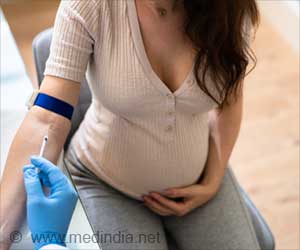- Approximately 4.5 million cancer deaths in 2019 were due to preventable risk factors such as smoking, drinking and having high body mass index (BMI)
- Reducing exposure to risk factors could help prevent a significant number of cancers
- This information could be useful for policymakers in determining the modifiable risk factors to target in cancer-control planning efforts
According to Rudolf Kaaks, a cancer epidemiologist at the German Cancer Research Center in Heidelberg, the findings, which were published in The Lancet, largely corroborate the findings of smaller studies. It demonstrates how reducing exposure to risk factors could help to prevent a significant portion of cancers. “The take-home message is simple: Don’t smoke. Don’t get overweight, and don’t drink too much alcohol,” said Kaaks.
Reporting Cancer Cases and Cancer Related Deaths
According to study co-lead author and epidemiologist Justin Lang of the Public Health Agency of Canada in Ottawa, it is difficult to determine the actual number of cancer cases and deaths worldwide because some nations do not keep such records. Lang and his colleagues utilized information from research that examined death and disability from more than 350 diseases and injuries in 204 countries. They calculated the effect of 34 risk factors on ill health and 23 types of cancer deaths using those data (see ‘Cancer deaths by tumor type’).More than one-third of cancer fatalities in women and half of all cancer deaths in men in 2019 were attributable to avoidable risk factors, such as smoking, drinking, poor food, unsafe sex and exposure to asbestos at work. The number of cancer deaths worldwide attributable to these risk factors grew by roughly 20% between 2010 and 2019, with excess weight being the main contributor, particularly in low-income countries.
“These results, in combination with local knowledge, may be useful for policymakers in determining what modifiable risk factors to target in cancer-control planning efforts,” says study co-author Kelly Compton, a project officer at the University of Washington’s Institute for Health Metrics and Evaluation (IHME) in Seattle.
Similar initiatives have been suggested to help reduce excessive alcohol use, according to co-senior author Lisa Force, who studies cancer burden and health metrics at the University of Washington. Smoke-free policies, higher tobacco taxes, and advertising bans have proven effective in reducing exposure to smoking.
Cancer Risk Factors
Some other well-known cancer risk factors, such as exposure to UV radiation and specific illnesses, were left out of the study. The human papillomavirus (HPV) and other sexually transmitted viruses were employed as a surrogate for the cancer risks linked with ‘unsafe sex’ by the researchers. The most common cancer among women in sub-Saharan Africa is cervical cancer, which is brought on by specific HPV strains. “They're a huge part of cancer incidence and mortality in women could be decreased by timely HPV vaccination,” said Kaaks.Once more information - for instance, about levels of exposure to those factors - is available, the researchers may include risk factors including infections and exposure to UV radiation in future assessments, according to co-author Jonathan Kocarnik, who models global cancer burden at the IHME.
Effect of COVID-19 Pandemic on Cancer Cases
Future research may be required to assess how the COVID-19 pandemic has affected cancer cases and fatalities. By 2025 there will have been more than 3,000 avoidable cancer deaths in England because of COVID-19-related diagnostic delays.“In some areas, the pandemic might have changed people’s exposure to certain risk factors: for example, workplace exposure to harmful products might have decreased during lockdowns. However, potential changes in risk-factor exposures and the impact on future cancer burden will likely take many years to comprehensively understand,” said Kocarnik.
Source-Medindia















